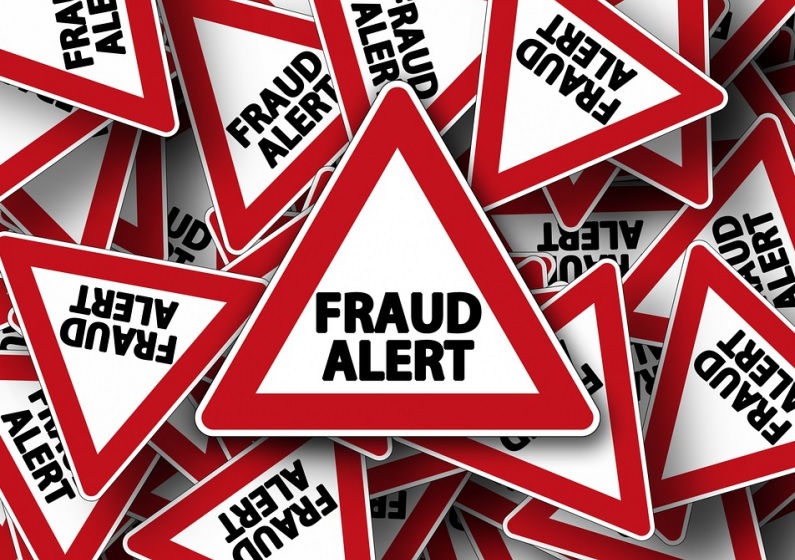Crime
Massachusetts, Florida, Tennessee, and Georgia residents charged in alleged $7.5 million fraud scheme

BOSTON – Six individuals, including three from Massachusetts, have been charged in connection with their alleged involvement in a multi-state scheme to obtain millions of dollars in Paycheck Protection Program funds for themselves, and others, through the submission of dozens of fraudulent applications to PPP lenders.
According to the Massachusetts Department of Justice, the following individuals have been charged by an Information with, and have agreed to plead guilty to, conspiracy to commit wire fraud and conspiracy to commit unlawful monetary transactions:
Wallace Ford, 38, of Buford, Ga.;
Adiana Pierre, 39, of Lookout Mountain, Tenn.;
Gardy Alexandre, 51, of West Palm Beach, Fla.;
Richardson Rhau, 49, of Brockton, Mass.; and
Wens Herby Mathurin, 26, of Brockton, Mass.
Plea hearings have not yet been scheduled by the court.
Bill Dessaps, 46, of South Easton, Mass., has been indicted separately on one count of conspiracy to commit wire fraud, one count of money laundering and one count of bank fraud.
According to the charging documents, Ford, Pierre and Alexandre conspired to submit fraudulent PPP applications on behalf of numerous actual or purported businesses and non-profit organizations – including businesses operated by Mathurin and Dessaps – and to collect kickback payments from the borrowers for securing loan amounts.
It is alleged that, shortly after PPP funds first became available in April 2020, Ford began submitting PPP applications on behalf of his own businesses, Pierre, Alexandre and other borrowers. Pierre, Alexandre, and others allegedly identified potential applicants and provided those applicants’ information to Ford. Ford then submitted applications for those borrowers online, fabricating how many employees worked for the businesses and those business’ monthly payroll expenses, facts that determined the size of a loan that a business could receive. Ford also allegedly submitted false wage and tax forms in support of the misrepresentations on the applications. As a result, between May and August 2020, Ford, Pierre, Alexandre and others obtained approximately $7 million in PPP funds to which they were not entitled.
It is further alleged that the borrowers who received PPP funds based on these fraudulent applications paid kickbacks to Ford, Pierre, Alexandre and others, commonly in amounts equal to 10 or 20 percent of the loan amount they received. Collectively, Ford, Pierre and Alexandre allegedly received over $1 million in kickback payments from borrowers.
The charging documents allege that, in June 2020, Rhau connected Alexandre with both Dessaps – the operator of an Abington-based used car dealership, who was then living in Bridgewater – and Mathurin – the purported operator of a warehouse and cargo delivery business living in Brockton. It is alleged that Alexandre then forwarded information about Dessaps’ and Mathurin’s businesses to Ford, who submitted fraudulent PPP applications to a lender on their behalf. Specifically, the application for Dessaps’ dealership falsely stated that the dealership had 40 employees and average monthly payroll expenses of $334,720. The application for Mathurin’s business falsely stated that the business had 25 employees and average monthly payroll expenses of $125,541. As a result of the applications, it is alleged that the lender disbursed a PPP loan of $836,800 to Dessaps and a PPP loan of $313,852 to Mathurin.
After receiving these funds, both Dessaps and Mathurin allegedly made kickback payments to Alexandre. Mathurin also allegedly sent additional payments totaling $45,000 to Rhau.
The charging documents also allege that Rhau fraudulently obtained $104,166 in PPP funds and $94,800 in other pandemic relief funds as a result of applications containing misrepresentations that he submitted to lenders between April 2020 and April 2021, and that Dessaps attempted to obtain a “Second Draw” PPP loan through another fraudulent application in March 2021.
The charges of conspiracy to commit wire fraud and wire fraud provide for a sentence of up to 20 years in prison, three years of supervised release and a fine of $250,000, or twice the gross gain or loss from the scheme, whichever is greater. The charges of conspiracy to commit unlawful monetary transactions provides for a sentence of up to 10 years in prison, three years of supervised release and a fine of $250,000, or twice the value of the criminally derived property. The charge of money laundering provides for a sentence of up to 20 years in prison, three years of supervised release, and a fine of $500,000 or twice the amount of money involved in the laundering transaction. The charge of bank fraud provides for a sentence of up to 30 years in prison, five years of supervised release, and a fine of $1,000,000, or twice the gross gain or loss from the scheme, whichever is greater. Sentences are imposed by a federal district court judge based upon the U.S. Sentencing Guidelines and statutes which govern the determination of a sentence in a criminal case.
Acting United States Attorney Joshua S. Levy and Harry Chavis, Jr., Special Agent in Charge of the Internal Revenue Service’s Criminal Investigations in Boston made the announcement. Assistant U.S. Attorney David M. Holcomb of the Securities, Financial & Cyber Fraud Unit and Assistant U.S. Attorney Alexandra W. Amrhein of the Asset Recovery Unit are prosecuting the case.
On May 17, 2021, the Attorney General established the COVID-19 Fraud Enforcement Task Force to marshal the resources of the Department of Justice in partnership with agencies across government to enhance efforts to combat and prevent pandemic-related fraud. The Task Force bolsters efforts to investigate and prosecute the most culpable domestic and international criminal actors and assists agencies tasked with administering relief programs to prevent fraud by, among other methods, augmenting and incorporating existing coordination mechanisms, identifying resources and techniques to uncover fraudulent actors and their schemes, and sharing and harnessing information and insights gained from prior enforcement efforts.
Anyone with information about allegations of attempted fraud involving COVID-19 can report it by calling the Department of Justice’s National Center for Disaster Fraud (NCDF) Hotline at 866-720-5721 or via the NCDF Web Complaint Form at: https://www.justice.gov/disaster-fraud/ncdf-disaster-complaint-form.






You must be logged in to post a comment Login